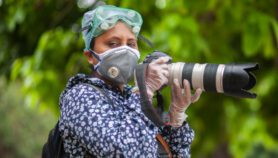By: Lisbeth Fog
Send to a friend
The details you provide on this page will not be used to send unsolicited email, and will not be sold to a 3rd party. See privacy policy.
[BOGOTÁ] Universities in Colombia say they have made great strides in raising awareness of science in the country and improving their own public image through newspaper supplements.
For the last decade, university communications departments have been producing regular newspaper supplements about their scientific research. The National University of Colombia, for example, puts out a monthly supplement, UN Periódico, that is distributed with thebiggest newspaper in the country, El Tiempo.
Now a survey of readers of UN Periódico has found that the university has soared in readers’ estimation and the science articles are among the most read in the paper.
The survey, which involved over 500 telephone interviews with El Tiempo subscribers, found that public perception of the National University has improved since the last poll in 2008, with over 98 per cent of respondents saying the newspaper has given them a positive perception of the institution.
Asked to rate how credible the university was as a source of information on a scale of 1 to 5, readers rated it at close to 5, and said that reliable information was the most important aspect of the supplement for them.
The study concluded that in 2010 some 20 per cent more readers — and almost 80 per cent in total — read about science in this supplement than in 2008.
The editors of UN Periódico select stories from research carried out in any of the eight regional branches of the National University throughout the country. To appear in the supplement research has to have been peer-reviewed or be the work of a respected scientist, or have practical or public policy implications for Colombian society.
"UN Periódico is part of a media system that supports the university in its main issues: science, technology, innovation and culture," Carlos Alberto Patiño, director of the university’s communication department, told SciDev.Net.
Patiño dismissed suggestions that the material could not be objective. Even though the ideas come from inside the university, the reporters always try to include objective, external comment, he said.
Other publications in Colombia include Alma Mater, the newspaper of Antioquia University, and Pequisa, from Javeriana University.
María del Pilar Palacio, from Informativo UnNorte, a supplement produced by Norte University in Barranquilla, told SciDev.Net that the publication has become a resource for professionals and decision makers, who are reading up on joint projects that the university carries out with the private sector.













